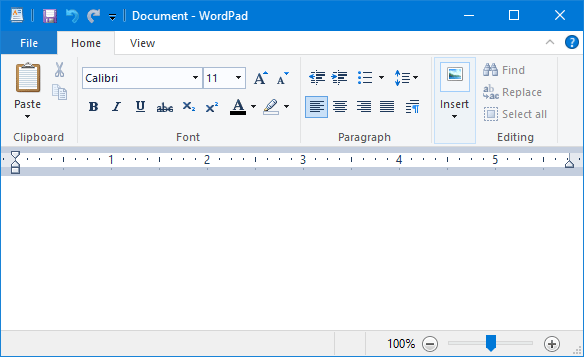In a significant move, with the release of Windows 11 version 24H2, Microsoft retires WordPad. The application will no longer be included in future versions of Windows, and it has been officially added to the list of deprecated featuresh. This marks the end of an era for the basic word processing application that has been a go-to tool for millions of users over the years.
The End of an Era
WordPad was first introduced with Windows 95, offering a simple yet effective way to create and edit rich text documents without the need for more complex software like Microsoft Word. For nearly 30 years, it served as a reliable tool for users who needed basic word processing capabilities without the bells and whistles of more advanced applications.
Why is Microsoft retiring WordPad?
Several factors contributed to Microsoft’s decision to retire WordPad. One of the primary reasons is the company’s focus on streamlining its operating system and removing older features that are no longer widely used. By doing so, Microsoft aims to create a more efficient and modern user experience.
Additionally, Microsoft has been encouraging users to transition to other applications for their word processing needs. For rich text documents, Microsoft recommends using Microsoft Word, which is part of the Microsoft 365 suite. For plain text documents, Windows Notepad remains the preferred choice.
Impact on Users
While some users may miss the simplicity and convenience of WordPad, the impact of its removal is expected to be minimal. Most users have already transitioned to more advanced word processing tools, and the availability of free alternatives ensures that there are plenty of options for those who need basic text editing capabilities.
Moreover, Microsoft has been enhancing Notepad with new features, such as spellcheck and tabbed windows, making it a more robust alternative for users who require basic text editing.
What are the alternatives?
With WordPad’s retirement, users will need to find alternative text editors. Microsoft recommends transitioning to Microsoft Word or Notepad, both of which are included in Windows. Microsoft Word offers a much wider range of features, including advanced formatting options, collaboration tools, and integration with other Microsoft Office applications. Notepad, on the other hand, provides a basic text editor with minimal features.
A bittersweet farewell
While the retirement of WordPad may be a disappointment for some users who have relied on it for years, it also reflects the evolution of technology and the changing needs of users. As Microsoft continues to focus on cloud-based productivity solutions, it’s likely that we’ll see more innovative and feature-rich tools emerge in the future.


Leave a Reply